Dr. Kris SinghPresident and CEO, Holtec International_x000D_
Holtec Center_x000D_
One Holtec Drive / Marlton, NJ 08053_x000D_
Telephone: (856) 797-0900MemorandumTo: The Fellow Alumni of BIT Sindri_x000D_
From: Dr. Krishna P. Singh, President and CEO, Holtec International_x000D_
Subject: Career Counsel Based on Personal Life Experiences_x000D_
Date September 9, 2014_x000D_
Dear Fellow Alumni:_x000D_
I was born in Barhiya, a dusty hamlet of some 15000 souls on the Ganges River in Bihar, in October 1947, while India was being convulsed by the horrors of partition. I graduated from Barhiya High School in 1961 with a state ranking that earned me a “national scholarship” making it possible for me to attend college. I entered St. Xavier’s college in Ranchi in 1961 and studied there for two years, hoping to grow up to become a researcher in nuclear physics. While at St. Xavier’s, the reality of scarcity in jobs in physical sciences in contemporary India gradually revealed itself, leading me to change course and seek an engineering career instead. Slightly underage, I could not compete for admission to an IIT. Sindri, where my uncle had studied earlier, became the default destination. My memories of Sindri are that of a monastic life with long class hours and a most demanding curriculum. I received an excellent education at Sindri._x000D_
After a brief two-semester teaching stint at the newly established RIT at Allahabad, I headed to the University of Pennsylvania in the fall of 1968 on a generous university fellowship, giving up a career in the Indian Railway service, which I had passed in the competitive examination. I earned a Masters in Engineering Mechanics in 1969 and a Ph. D. in Mechanical Engineering in_x000D_
1972 my entire graduate education financed by Penn._x000D_
Thanks to my rigorous undergraduate training at Sindri, I began to consult with the local manufacturers in the Philadelphia area while still in graduate school. Starting in 1970, the consulting work, limited to one day a week per university guidelines, made me a prosperous graduate student. In the course of my consulting work at various companies, I met my wife Martha Jane in 1971. We married on May 18, 1974 (coincidentally the very day India conducted its first nuclear test). We celebrated our 40th anniversary four months ago._x000D_
After completing my Ph. D., I took a full time job with one of the manufacturers who aspired to become a supplier to the nuclear power industry. For the next 15 years, I concentrated on developing technologies for the emerging nuclear power industry, publishing over 60 technical papers, several patents and nomographs, a reference book on heat exchangers (1984) and hundreds of industry reports. In 1987, the American Society of Mechanical Engineers elected me a Fellow of the Society._x000D_
In 1986, secure in the belief that there was a demand for the technologies I was developing, I founded Holtec International. The company grew rapidly, becoming the world’s largest supplier of wet storage systems for used nuclear fuel by the mid-1990s. At present, over 120 nuclear plants use Holtec’s wet storage systems. In 1993, Holtec launched the dry storage and transport product line for used nuclear fuel. Today, Holtec provides dry storage and transport systems for_x000D_
67 nuclear plants in nine countries. Holtec is now America’s largest exporter of capital nuclear equipment. The company is also a noted global supplier of power plant equipment._x000D_
Commenting on my $20 million dollar gift to my alma mater, the University of Pennsylvania, to build a nanotechnology center (see photo below), the Wall Street Journal cited my self- description as a “product of charity” of others. Indeed, my career would have ended in the wheat fields of Barhiya if I had not received grants and scholarships from various sources, especially the Indian Government, since age 10._x000D_
The Krishna P. Singh Center for Nanotechnology_x000D_
Charitable giving is indeed a glorious aspect of the Indian society. Witness the thousands being fed by private donations around the country’s temples. I believe I have been immensely blessed by the charity of others. It is now my duty to give back to the great land that provided nourishment and quality education to me in my early years. Going forward, India will be the center of my charitable efforts. I am fortunate to have the company of earnest men and women in the Sindri Alumni Association who share my passion for charity. I have recently announced that I will spend six million dollars improving sanitation in Bihar beginning with the dormitories at Sindri and my hometown Barhiya. If things go as planned, we will establish a professional organization to run what I call the National Sanitation Project (NSP) headquartered in Pune where we currently have Holtec’s South Asia operation center. I have set no limit on the cumulative contribution that I would make to the NSP to deal with the sad state of public sanitation conditions that prevail in large swaths of India._x000D_
Indian society, as you know, has prized government jobs, which is typical of a socialist society. I believe that now that India is embracing capitalism, the country will provide an increasingly hospitable environment for entrepreneurs. As an entrepreneur, you will create jobs, possibly incubate a new industry and possibly make a positive impact on the society. Entrepreneurship, however, requires fire in the belly, a cast iron stomach and willingness to take risk. It is not for everybody. Some talented people make great contributions working within existing organizations. Whether you choose to strike out on your own or work to contribute to an existing organization, you must seek to excel in your work. A professional career lived with the satisfaction of having done one’s best is one of the greatest satisfactions life can bestow on you._x000D_
No matter what career path you elect to follow, treat corruption as a scourge in the Indian society and fight it in every way you can. Likewise, the caste system, the world’s oldest social structure still intact after three millennia, needs to be eradicated if India is to realize its full potential that its past civilizational achievements warrant. I am proud that India remains an oasis of liberal democracy with striking diversity of religious beliefs in a neighborhood full of jihadis and extremists. We must strive to maintain a fair and just society that is inclusive and welcoming of all its citizens, regardless of their religion or creed. The extremism that is wreaking havoc in the Middle East will not find a foothold in India if we hew to our ancient cultural tenets that instruct us to conduct our lives with utmost tolerance, accommodation, and fairness._x000D_
I leave you with the above thoughts to ponder.
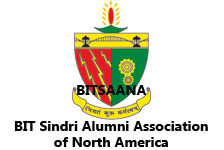
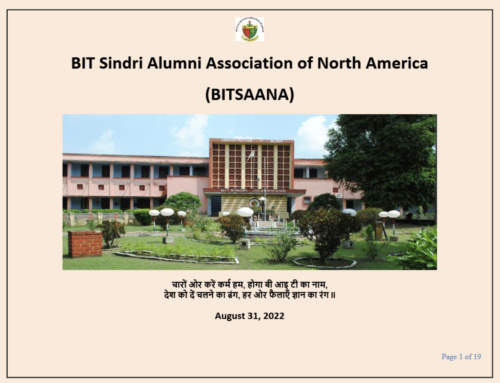
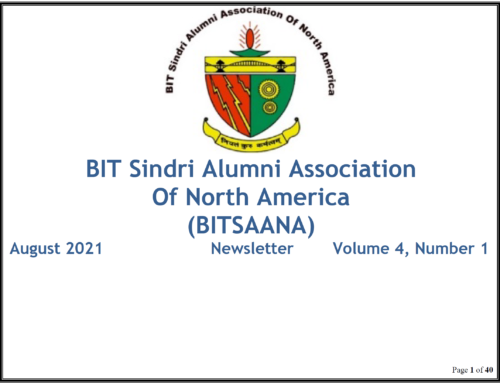
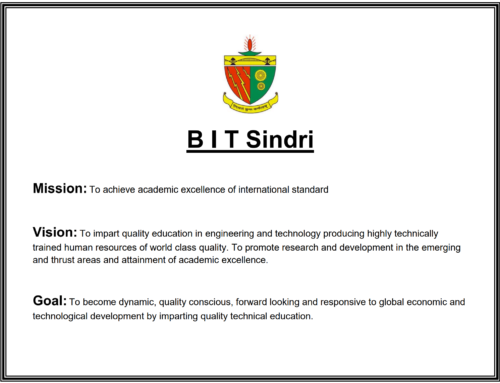
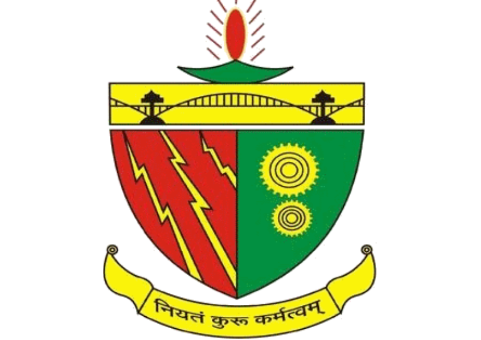




 Total views : 4279
Total views : 4279